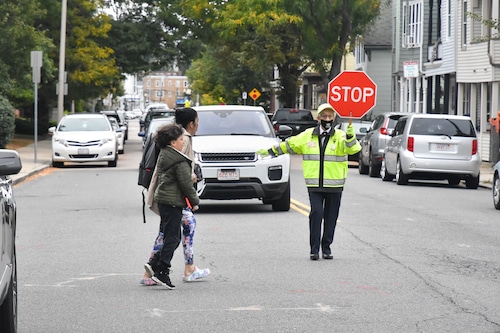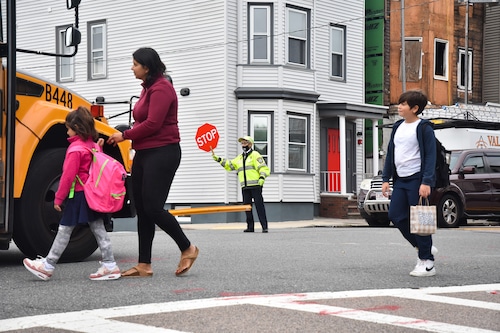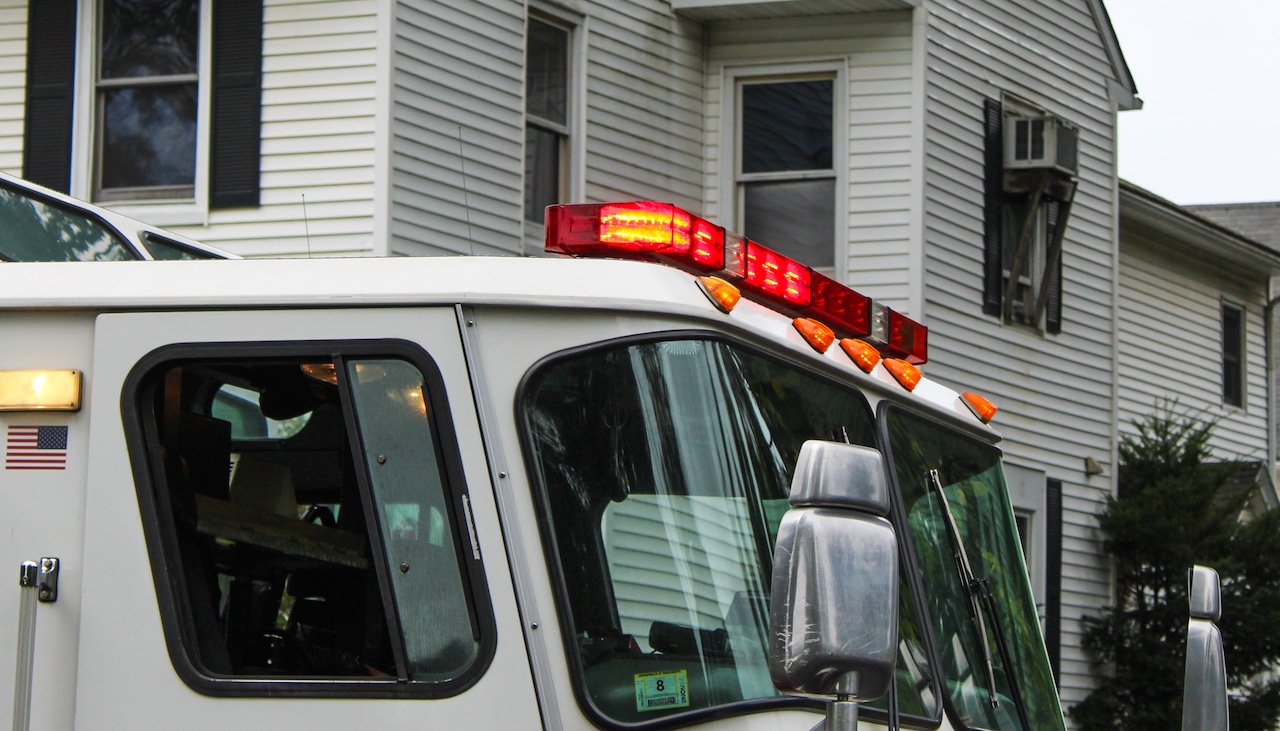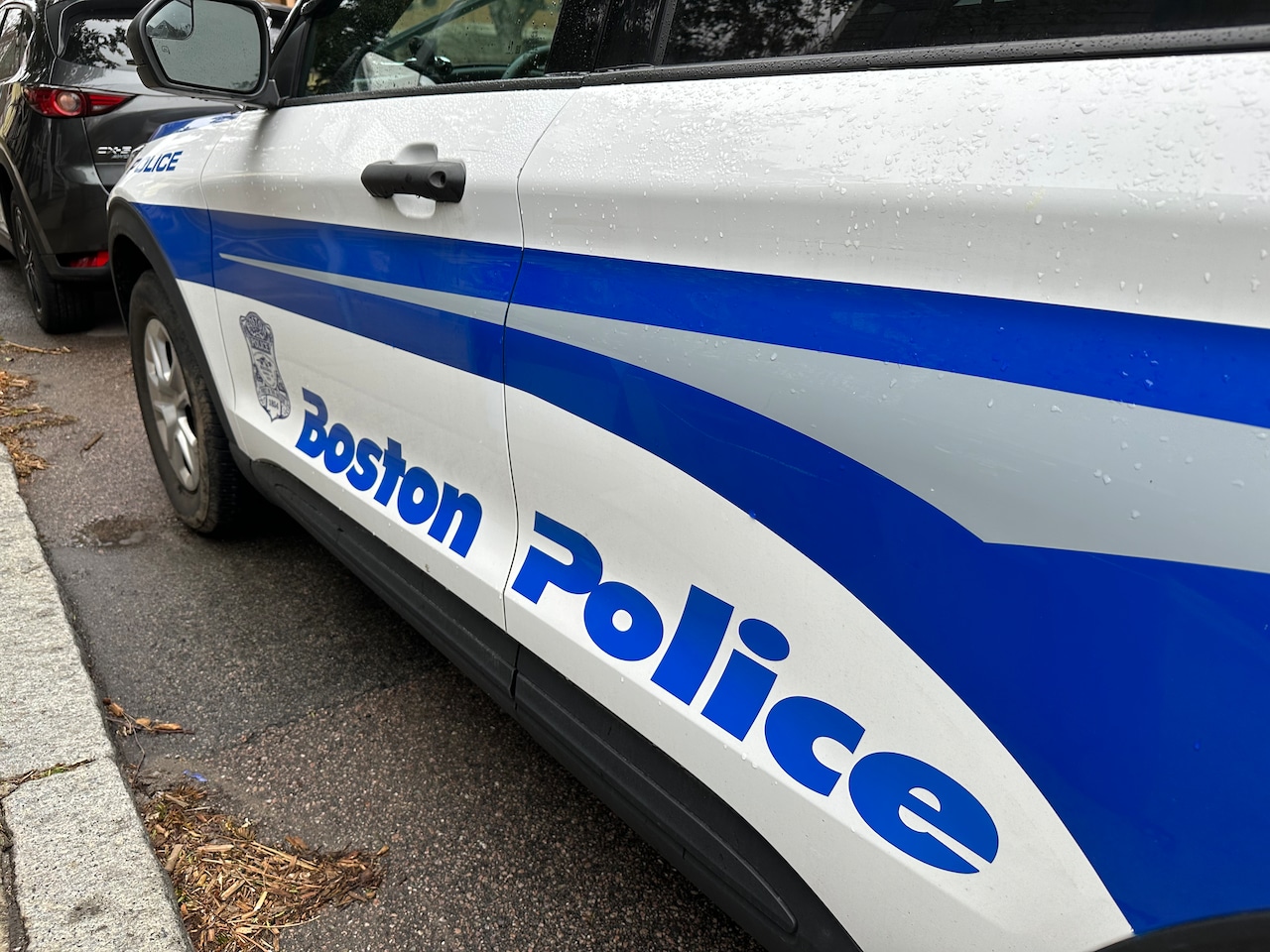For 24 years, Anna Caldarelli has risen each school day morning well before most of her neighbors to make sure the children of East Boston make it to class safely.
A lifelong resident of the neighborhood, Caldarelli, 80, points out the teenagers and adults, her neighbors, who she crossed as young children.
“Some kids come to the corner crying and I always have a tissue. We tie many shoelaces,” she said. “It’s a pleasant job and it keeps us young.”
But her job is one fewer and fewer people seem willing to do.
Boston has 153 crossing guards and more than 50 vacant positions city officials would like to fill. It’s not the only city or town facing a shortage of people interested in this 15-hour-a-week, part-time role.
“Nobody is applying,” Caldarelli, the president of Boston’s crossing guard union, said.
Officials in Natick, Hudson and other towns across the region also report difficulty hiring and retaining crossing guards. The city of Watertown budgets for about two dozen positions. Half are empty, Watertown Police Chief Justin Hanrahan told MassLive last month.
“We’re, like, begging people,” he said.
Boston faces the unique troubles of being the largest urban area and the largest school district in the region.
But here and in suburbia, there are intersections where a young child walking to school or their bus simply can’t safely cross alone.
When one of those crossing guard positions goes unfilled, the city turns to police officers to fill the gap.
There enters another problem: Boston is short several hundred cops, stretched thin by a nationwide exodus from law enforcement.
Some crossing shifts overlap with police department shift changes. When he was a captain, Boston Police Superintendent Robert Ciccolo recalled that he would need an officer coming off an overnight shift to stay on longer to cross students in the North End.
In the morning rush, an intersection by the North Washington Street Bridge “was not a spot we can leave uncovered,” he told City Councilors on Sept. 12.
Those extra hours worked mean more money spent for a department whose overtime pay reached $88.5 million last year and annually runs well over budget.
Councilor Enrique Pepén is grateful for the officer he recently saw crossing kids one morning at a busy intersection in Roslindale.
But with the police department drastically understaffed, “I would rather him doing some other type of enforcement,” he said.

Crossing guard Anna Caldarelli stops traffic in East Boston on Wednesday morning to allow students to cross the street safely. She works 15 hours a week and has been a crossing guard for 24 years. (Will Katcher/MassLive).Will Katcher/MassLive
When Caldarelli took over the union in 2017, she represented 196 crossing guards. But as it did across countless industries, the COVID-19 pandemic decimated Boston’s crossing guard ranks, driving dozens into retirement.
The position can be tricky to hire for: 90-minute shifts each morning and afternoon and part-time pay starting at $18 an hour in the most recent union contract. It’s not for everyone.
Caldarelli wakes around 5 a.m. most mornings — usually her Maltese’s fault — and at around 7:30 a.m. walks to work at the corner of Saratoga and Westbrook streets, a stone’s throw from her front door.
Eighty-five percent of Boston’s crossing guards are women. A majority are non-white. Three dozen are over age 70. The oldest member of their union is 92. Most crossing guards work in their neighborhoods within walking distance of home.
Joseph Donnellan, a Norwood attorney representing the union, said the modest wages and the city’s lackluster recruiting are responsible for the crossing guards’ diminished ranks.
Caldarelli also bristled at the requirement that public employees be Boston residents, a rule city officials have waived for some positions, though not for crossing guards.
Living in Boston is increasingly unaffordable for many in the public sector.
Caldarelli said many crossing guards work second jobs. Their starting annual salary is $13,000 for 15 hours of work per week, which is equal to about $34,600 for a 9-to-5 job. Under the new union contract, it will rise 20% over the next four years.
“Absolutely,” the residency requirement “should be dropped,” Caldarelli said.
“Right now, we have a crossing guard crisis,” Hanrahan, the Watertown police chief, said.
When his officers arrive for morning roll call, some are sent immediately to intersections missing crossing guards.
Hanrahan identified a few solutions when he was promoted to police chief last year. One was a pay raise for crossing guards, who are civilian employees of the police department, as they are in Boston.
A second was to begin a cadet program to hire young prospective police officers, train them on the job, and, in the process, gain extra hands for dispatching, community events and traffic control.
Boston has a cadet program, yet about 60 positions are unfilled, police officials told the city council earlier this month.
The same recruiting issues facing departments hiring full-time officers also plague their recruitment of cadets, reflecting a general falling interest in law enforcement careers.
In the past, the Boston Police Department used cadets “significantly for traffic,” Ciccolo told the city council earlier this month. “In fact, they had permanent traffic assignments. Right this minute, we don’t have the staffing levels on the cadet side to do that.”

Crossing guard Anna Caldarelli during the morning school day commute in East Boston on Wednesday. (Will Katcher/MassLive).Will Katcher/MassLive
Pepén suggested transferring the crossing guards from the police department to another city division — the school system or the Transportation Department, for instance — as he said some Greater Boston communities had done.
He reasoned that a person could cross children in the morning and afternoon and work elsewhere in the schools or do parking enforcement for the city in the middle of the day. That may ease recruitment and hiring, Pepén said.
Caldarelli rejected that idea. Though crossing guards are civilians, they wear a badge, identification and uniform that say “Boston Police,” and she liked that.
“We get the respect,” she said.
“She does a great job,” one neighbor, who gave his name as Anthony P., said Wednesday as he steered his motorized wheelchair past Caldarelli‘s corner.
He had known her for 20 years and received her crossing assistance many times.
“I just want the city to be safe,” he said.






